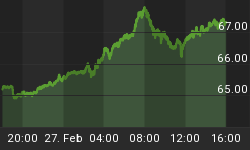Only days after being celebrated for breaking all kinds of new investing records as U.S. states began reopening their economies, the cream of the crop of online brokers has gone sour. That run on stocks by newbie ‘investors’ through no-fee online trading platforms wasn’t, after all, sustainable. They made some quick gains on contrarian plays, such as airline stocks, but the fundamentals came back to haunt anyone who didn’t take their profits--immediately.
The hottest stocks on Robinhood--the pioneer no-fee trading app that has attracted many millennials--started faltering on Thursday, digging deep into the red.
It turns out that trading on one of the millions of buzzy headlines about an economic recovery isn’t enough of investment education.
On Wednesday, the Federal Reserve came out with a rather gloomy picture of a slow economic recovery and continued, rampant unemployment for some time, and that re-opening of economies and removal of stay-at-home restrictions showed signs of backfiring into a potential second wave of the COVID-19 pandemic.
And the fundamentals of things such as airline stocks started to leak through the glossy surface of headlines promising that more flights will now start up.
These three things combined to shake the Dow into reality for a nasty correction on Thursday, when it lost over 1,800 points, with the S&P 500 and the Nasdaq Composite also seeing one of their worst days since March.
Related: What Do India's Latest Reforms Mean For Its Coal Industry?
But Jim Cramer has another theory: He thinks Wall Street traders are gaming the system, using newbie online investors as human shields.
Cramer told CNBC’s “Squawk Box” that “it’s a game” in which professionals on Wall Street are taking advantage of amateur investors by bidding up downtrodden stocks in premarket trading to make them look hot when they’re not.
Getting A Handle on New Investing Sentiment
Millennials are hitting up the reinvented online broker world right now, specifically, because they missed the big rallies post-financial crisis and post-9/11. They watched others make massive money off the rallies by getting in at the right time. The COVID-19 pandemic was their big chance.
In fact, in late May, Finder.com published a coronavirus investing report showing that Gen-Zers and millennials were 66% more likely to invest over the next 12 months than baby boomers, FT reported.
But these new investors are also making it increasingly difficult to follow the market to its rational conclusion. They took a swing at a sudden coronavirus related rebound, and they hit the mark, for a few days.
But going up against the fundamental kinds like Warren Buffett isn’t all that easy.
In the meantime, however, these legions of new investors--some young, some old, all small--are muddying the waters.
As Jim Cramer puts it on The Street’s “Real Money”, for young investors who don’t even know the difference between stocks and bonds, “a combination of low dollar amount, no knowledge of a balance sheet and the sheer thrill of it all led to the runs in the Norwegians, the Americans , the Macy's and the Apaches.
Robinhood may have leveled the playing field by making investing free and easy and not just for the sophisticated, but it’s changing the way everyone else has to weigh sentiment going forward. If stocks are rallying hard and the fundamentals just don’t make sense, before you jump on board, consider the source of the rally and whether it’s really sustainable. In the meantime, beware the game.
By Michael Kern for Safehaven.com
More Top Reads From Safehaven.com:

















no, they didn't. They were infants during the post-9/11 era